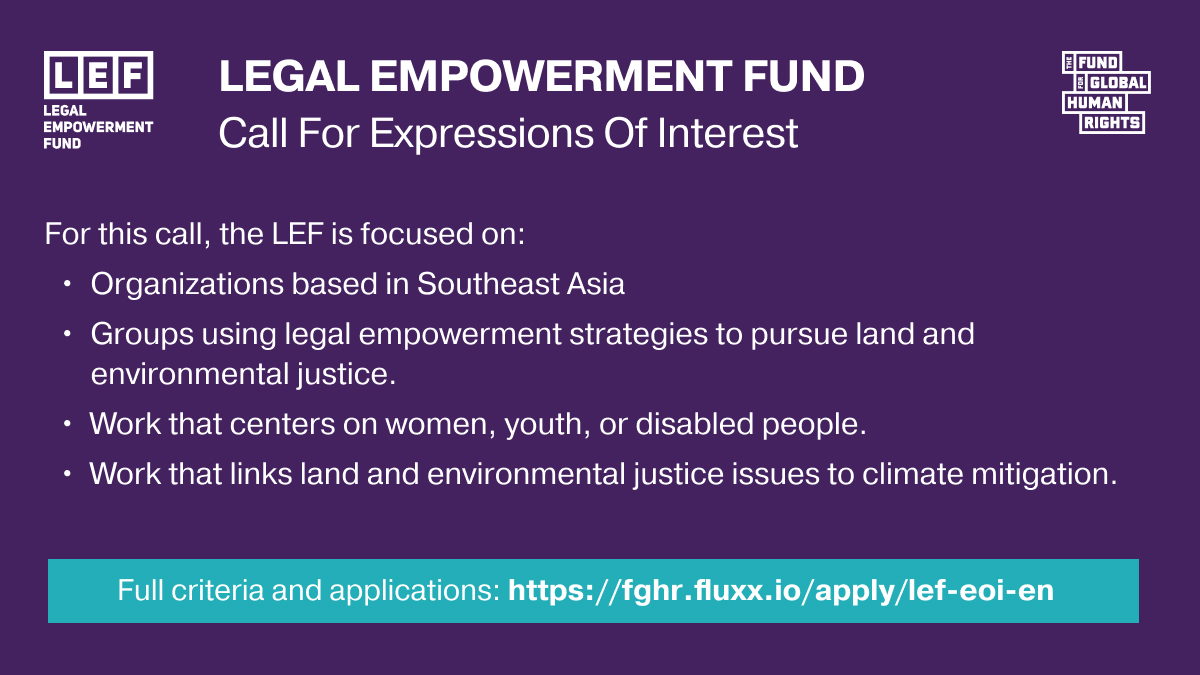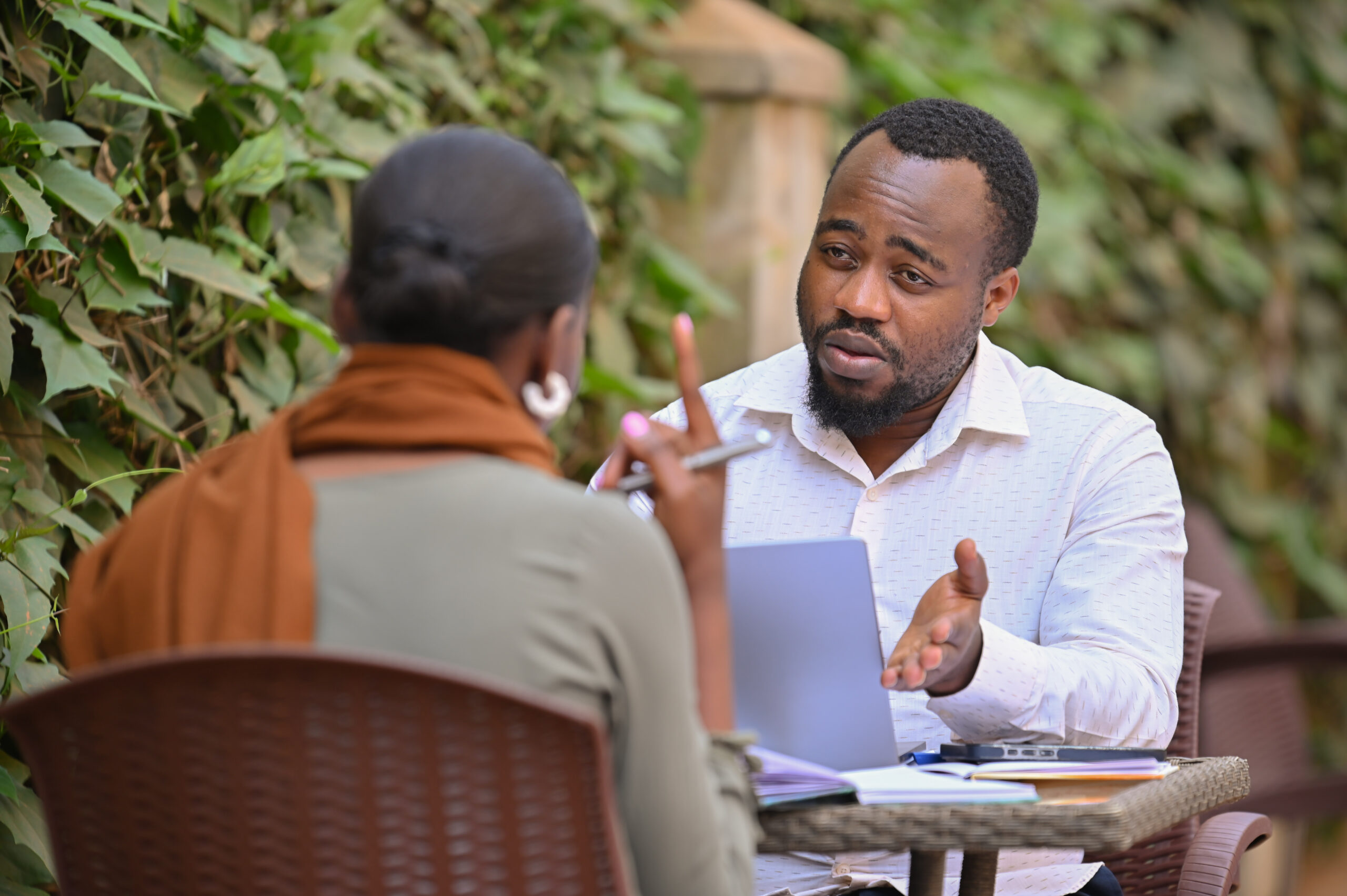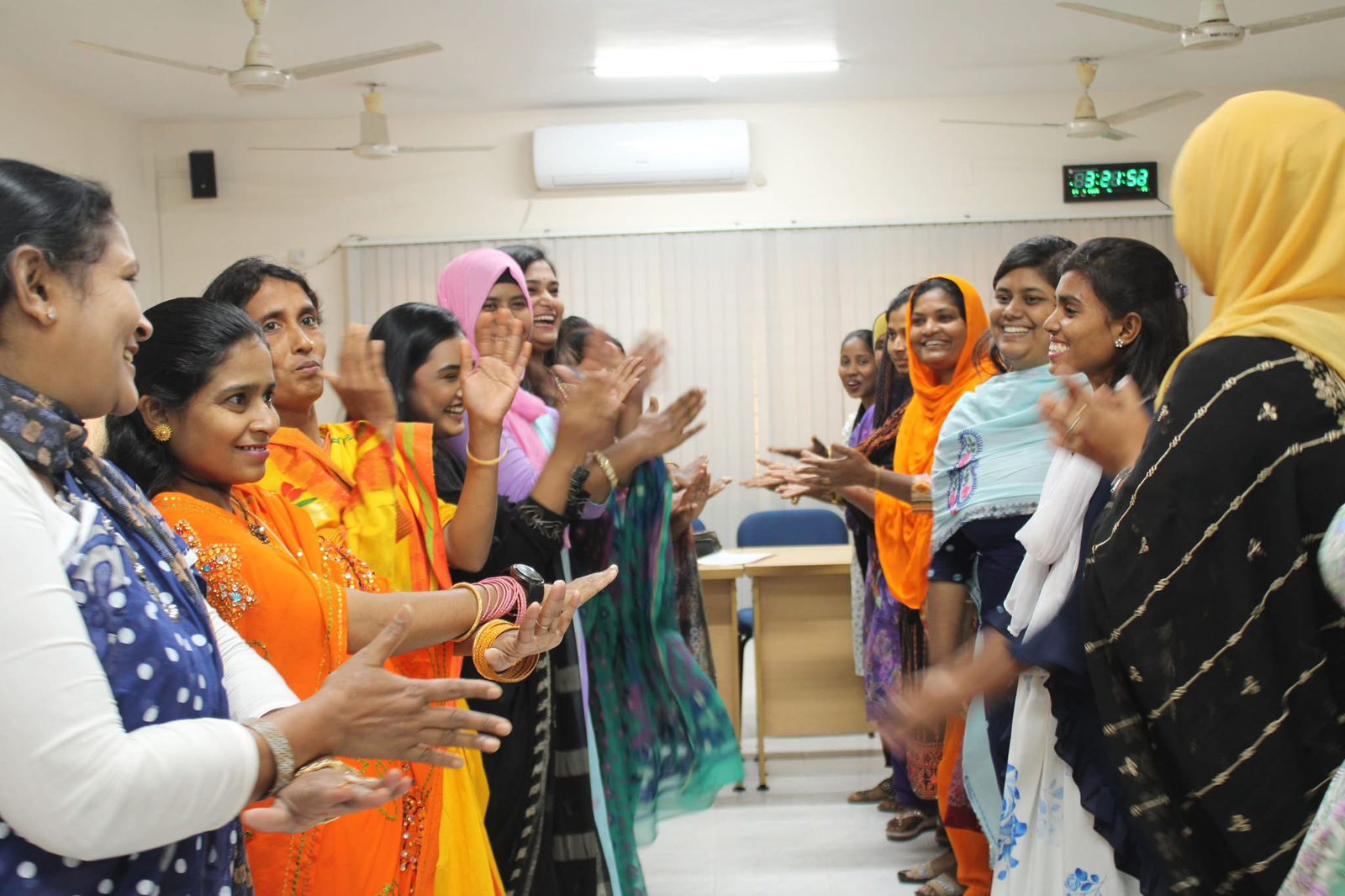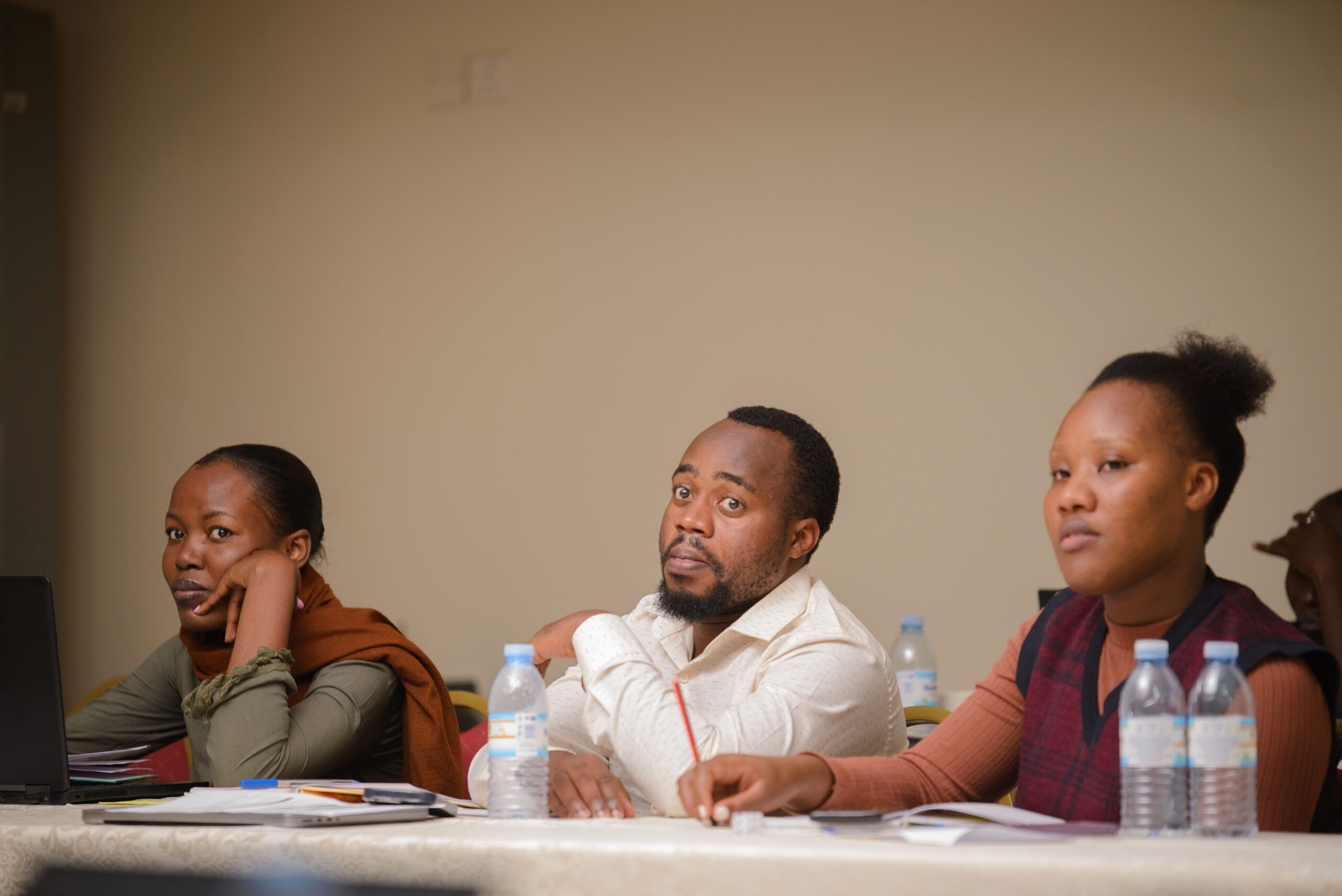The Legal Empowerment Fund (LEF), a program hosted by the Fund for Global Human Rights, this week launched its second call for expressions of interest.
This call is focused on grassroots justice groups who use legal empowerment strategies to pursue land and environmental justice as a tool to mitigate or adapt to climate change. This round of funding will be limited to organizations in Southeast Asia. The application is available in English, Bahasa Indonesia, Burmese, Malay, Thai, and Vietnamese.
The LEF is is a 10-year, multimillion-dollar initiative dedicated to giving frontline activists and grassroots groups the support they need to close the global justice gap. Since 2021, the LEF has delivered over $5 million to more than 100 grantees in 56 countries.
Why Land and Environmental Justice?
Grassroots land and environmental justice is a critical solution to the climate crisis. Throughout the world, communities with less wealth and power face enormous environmental harms. These groups are disproportionately impacted by the effects of the climate crisis, despite being the least responsible for it. The consequences of climate change and environmental injustice—including eroding coastlines, destroyed ecosystems, and seized land—are deepening inequalities in some of the world’s poorest and most vulnerable communities. And when disasters strike, marginalized groups—including women, children, and people with disabilities—are the first to suffer.
These communities have been stewarding their land and environment for years and have the knowledge and ability to protect it. They deserve the right to shape what happens to the land where they live. Cursory consultation is not enough. People should have the right to say yes or no to any form of development—and, if they say yes, to set the terms and benefit from the rewards.
When communities are treated fairly and know their rights, they can be drivers of a transition to a new, green economy that is just and sustainable. By using legal empowerment to help communities know, use, and shape the law, grassroots justice groups have led efforts to stop harmful infrastructure and enforce protective regulations. Efforts to equip communities with confident knowledge of the rights to their land have resulted in communities ready to invest in more climate-resilient infrastructure and sustainable food sources.
Organized communities, who are able to use their knowledge of the law to shape decision-making, are not only our first line of defense against climate change and environmental destruction. They are a vital part of the entire human rights ecosystem. Across the world, empowered communities have strengthened rights, enhanced access to justice, and elevated human rights standards. This vision—for an economy that respects both human rights and our planet—is a vital part of the solution to the climate crisis.
Why Southeast Asia?
Southeast Asia has been disproportionately affected by extreme weather events in recent years. According to the 2021 Global Climate Risk Index (the most recent year that data is available), three countries in Southeast Asia—Myanmar, Thailand, and the Philippines—are among the 10 countries most affected by extreme weather in the last decade. By resourcing legal empowerment groups in Southeast Asia to tackle environmental injustice head-on, we are supporting communities who are on the very front lines of the climate crisis.
We believe that impacted communities like these should be primary change-makers in the fight for a just transition. But grassroots legal empowerment solutions to the climate crisis are woefully underfunded. For impacted communities to have a seat at the table, they must be better resourced, connected, and supported.
The LEF, in partnership with the Global Justice Network, offers not only funding but also strategic support, technical assistance, and a global community of legal empowerment practitioners and allies. This type of support can be transformational, especially for groups working within small, often remote, communities who lack access to major climate funders. Successful applicants will have the chance to benefit from the legal empowerment network, to share learning and collaborate, and to prove that local solutions have the power to transform the world.



